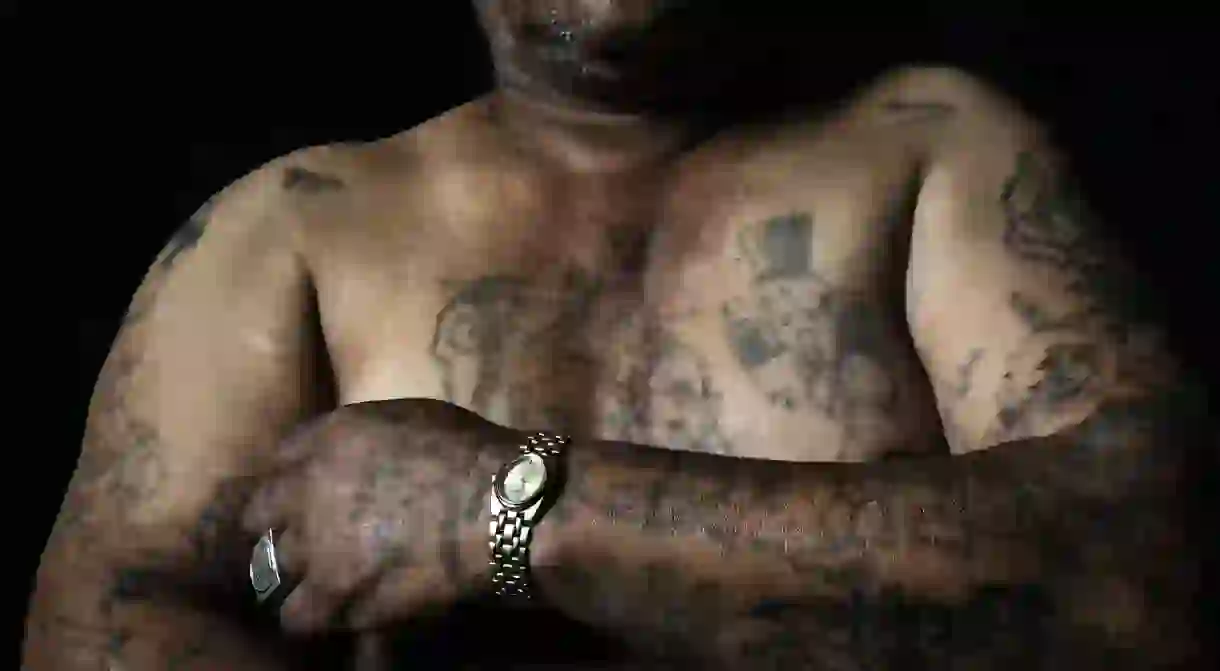In Portraits: the Stories of Cape Town's Ex-Gang Members

‘The Interrupters,’ a photo series by Cape Town-based photographer Lee-Ann Olwage, portrays ex-gang members who have turned their lives around and aims to reveal the hard-hitting social issues that contribute to gangsterism in South Africa.
‘I am driven by my deep love for portraiture and the human condition and seek to tell stories that matter in the most raw and authentic ways possible’, Lee-Ann told Culture Trip. ‘I often spend months with my subjects before I photograph them in order to truly understand the story I am telling’.
When she heard about Ceasefire, an initiative that makes use of reformed gang members to work as professional ‘violence interrupters’, she knew that it was an excellent solution to the gang problem in Cape Town.
‘I have always been fascinated by gangsterism, but not for the sensationalist reasons. I wanted to know more about the person behind the label and hear their stories and discover the social issues that contribute towards young men joining gangs. I was intrigued by the subject matter but wanted to go deeper and actually get to know these individuals and hear about who they are’, she said.
The project took Lee-Ann nine months to complete, as her subjects were initially very media shy. She soon realised that she had to build relationships with them and earn their trust. After spending much time at their family homes, Lee-Ann was able to photograph the ex-gangsters and she elaborated by saying that ‘photographing someone can be a very sensitive and delicate task, especially in this case, and therefore it was important for me to invest the time’.
Her creative work was often delayed due to gang-related shootings and gang wars raging in the neighbourhood. ‘It was an intense experience at times, as my safety was never guaranteed, but I always felt safe and I knew that they [the interrupters] would do anything to protect me. It was therefore also a huge responsibility to honour them and their stories through my images’.
Lee-Ann created a social campaign to exhibit the series, and as the subject matters were present, the audience was able to engage with them. Lee-Ann is extremely happy with the outcome and said that the exhibition ‘cultivated a sense of compassion and understanding and gave viewers the chance to interact with the subjects, breaking down social boundaries and blurring the line between us and them’.
Their stories

‘My name is Patrick Hermanus and I remember the day I changed my life very clearly. I was driving around with a fellow American and his girlfriend. They got out of the car to buy something to drink and when they came back, “they” opened fire on us. A few minutes later Gavin died. That was the day I changed my life’. – Patrick Hermanus

‘Life in the Cape Flats produces young people who have so few life options that, for many, becoming a gang member is almost inevitable. They say if you can’t beat them, join them. It’s the only way you can move forward in life. The gang gives you money and status. Then they give you a gun and you shoot your way through life’. – Nealon Petersen

‘There is such a strong sense of Us and Them when it comes to gangs and the community. I spent twenty years with the Americans. When you have been involved with gang activities for so long it becomes a big part of your identity. Changing is a daily battle. My life serves as an example for others that change is possible’. – Wilfred McKay

‘I come from a family of gangsters. I had big dreams as a little kid, but my dreams died the day my two brothers were shot dead. That was the day I signed a deal with the devil and I became a gangster. I was sentenced to ten years in prison. It was there that I learned to dream again; I finished high school in prison. It was there that the dream for a better life started’. – Gordon De Bruin

‘From an early age, kids identify with gang identity. It starts off very innocent: kids play fighting with sticks and stones and as they get older sticks and stones progress to knives and guns. This brotherhood becomes your life, but even your own brothers forget about you when you go to prison. One thing you will never have is your freedom’. – Suleiman Manuel

‘I got the nickname Little Devel when I was in prison and got it tattooed on my neck. This caused some problems for me when I changed my life and I got a job at the Dutch Reformed church. When the pastor saw my tattoo he asked me not to come back to work the next day. Changing your life is very difficult, because people in the community still judge you’. – Samuel Gerwel

‘Things changed when I got out of prison after a nine-year sentence. Most of my friends were shot dead. One night I looked in the mirror and asked myself: is this really who I want to be? One of the most difficult things about changing your life is that you will always get those people who will hold the past against you. People judge you, they call you a skollie [A gangster or somebody who deliberately breaks laws]. But even skollies can change’. – Khiyaam Frey













